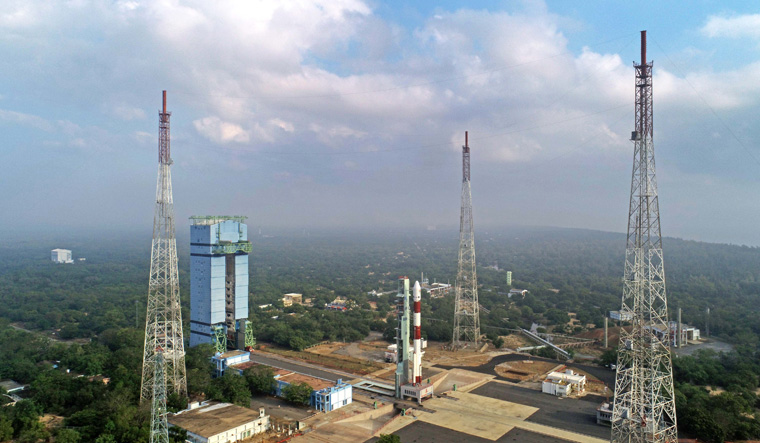The Indian Space Research Organisation is set launch a dedicated satellite to study bright astronomical X-ray sources in extreme conditions on Monday. The X-Ray Polarimeter Satellite will be launched from Sriharikota at 9.10am on January 1.
“The XpoSat - X-ray Polarimeter Satellite, is India’s first dedicated polarimetry mission to study various dynamics of bright astronomical X-ray sources in extreme conditions. The emission mechanism from various astronomical sources such as blackhole, neutron stars, active galactic nuclei, pulsar wind nebulae etc. originates from complex physical processes and are challenging to understand. The polarimetric observations along with spectroscopic measurements are expected to break the degeneracy of various theoretical models of astronomical emission processes,” the space organisation said.
The PSLV-C58 rocket, in its 60th mission, would carry primary payload XPoSat and 10 other satellites to be deployed in low earth orbits. “The spacecraft will carry two scientific payloads in a low earth orbit. The primary payload POLIX - Polarimeter Instrument in X-rays, will measure the polarimetry parameters (degree and angle of polarization) in medium X-ray energy range of 8-30 keV photons of astronomical origin. The XSPECT - X-ray Spectroscopy and Timing, payload will give spectroscopic information in the energy range of 0.8-15 keV,” it said.
ISRO said POLIX has a life span of five years and it is expected to observe about 40 bright astronomical sources of different categories during the period.
The space agency said the satellite is anticipated to bring substantial benefits to the Astronomy community globally. “Apart from its capability of timing and spectroscopy-based observations, the insights derived from X-ray polarisation measurements on celestial objects like black holes, neutron stars, and active galactic nuclei, hold the potential to significantly improve the understanding of their physics,” it said.
-with PTI inputs.










